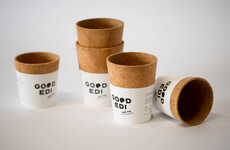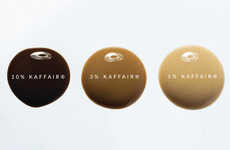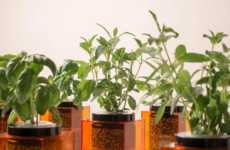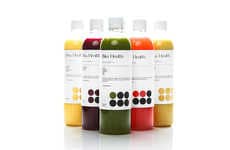
For #FeedingTheFuture, The Economist Shared Coffee Made with Used Grounds
Laura McQuarrie — May 11, 2017 — Eco
References: press.economist & eventmagazine
As part of its ongoing #FeedingTheFuture campaign that examines the future of food, and food waste, The Economist has launched stations that give away smoothies made from misshapen produce and cups of protein-rich ice cream topped with edible insects.
Most recently, The Economist introduced a coffee cart in London that gives out free cups of coffee made with used coffee grounds. This newest stunt, 'Grounds for Change' aims to bring awareness to the many ways in which coffee grounds can be reused.
While there are many conscious consumers who already make a habit of using coffee grounds twice, Grounds for Change aims to spark a discussion on food production and consumption on a global scale.
Most recently, The Economist introduced a coffee cart in London that gives out free cups of coffee made with used coffee grounds. This newest stunt, 'Grounds for Change' aims to bring awareness to the many ways in which coffee grounds can be reused.
While there are many conscious consumers who already make a habit of using coffee grounds twice, Grounds for Change aims to spark a discussion on food production and consumption on a global scale.
Trend Themes
1. Double-filtered Coffees - Opportunity for innovative coffee companies to create new products using used coffee grounds.
2. #feedingthefuture - Growing trend of sustainable food practices presents opportunities for businesses to develop innovative solutions for reducing food waste.
3. Coffee Waste Repurposing - Rising interest in repurposing coffee waste creates opportunities for environmentally-friendly businesses to transform coffee grounds into new, value-added products.
Industry Implications
1. Coffee - Coffee industry can explore new uses for coffee grounds and implement sustainable practices to reduce waste.
2. Food Waste Management - Food waste management industry can leverage innovative solutions to repurpose coffee grounds and other organic waste into valuable resources.
3. Sustainable Agriculture - Sustainable agriculture industry can adopt practices that utilize coffee waste as a natural fertilizer and soil enhancer.
4.3
Score
Popularity
Activity
Freshness























